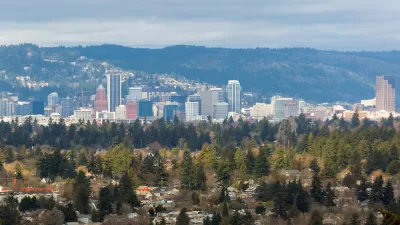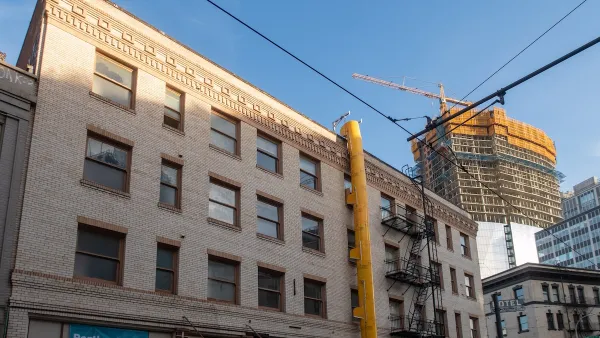Plans that focus on giving funds to renters and home buyers won't make housing affordable, and can inflate housing prices and rents.

In commentary for City Observatory, Joe Cortright argues that to address rising housing costs, cities need to reconsider supply and demand. "Rent and home purchase subsidies may help out a few individuals, but only at the cost of making the affordability problem worse for everyone else," Cortright says.
But that hasn't stopped policy makers from trying. "In Vancouver, the British Columbia provincial government has announced that it will match the down-payment that first-time homebuyers make to purchase a new residence," Cortright points out. Meanwhile in Portland, "… local landlords group has proposed that the state instead enact a rental subsidy, roughly modeled on the federal Section 8 voucher program. The proposal is that the state would allocate something on the order of about $20 million per year to provide rent subsidies of around $100 per month to as many as 20,000 low and moderate income households."
These demand-side solutions will benefit some, but the supply problem is likely to persist. Progressive programs to aid low income renters will help those who are organized and informed enough to access them. But, others will be negatively effected by more money being pumped into the system. In cities like Vancouver and Portland, which are already popular, stoking demand may be counterproductive.
FULL STORY: How not to fix housing affordability

Maui's Vacation Rental Debate Turns Ugly
Verbal attacks, misinformation campaigns and fistfights plague a high-stakes debate to convert thousands of vacation rentals into long-term housing.

Planetizen Federal Action Tracker
A weekly monitor of how Trump’s orders and actions are impacting planners and planning in America.

In Urban Planning, AI Prompting Could be the New Design Thinking
Creativity has long been key to great urban design. What if we see AI as our new creative partner?

King County Supportive Housing Program Offers Hope for Unhoused Residents
The county is taking a ‘Housing First’ approach that prioritizes getting people into housing, then offering wraparound supportive services.

Researchers Use AI to Get Clearer Picture of US Housing
Analysts are using artificial intelligence to supercharge their research by allowing them to comb through data faster. Though these AI tools can be error prone, they save time and housing researchers are optimistic about the future.

Making Shared Micromobility More Inclusive
Cities and shared mobility system operators can do more to include people with disabilities in planning and operations, per a new report.
Urban Design for Planners 1: Software Tools
This six-course series explores essential urban design concepts using open source software and equips planners with the tools they need to participate fully in the urban design process.
Planning for Universal Design
Learn the tools for implementing Universal Design in planning regulations.
planning NEXT
Appalachian Highlands Housing Partners
Mpact (founded as Rail~Volution)
City of Camden Redevelopment Agency
City of Astoria
City of Portland
City of Laramie





























